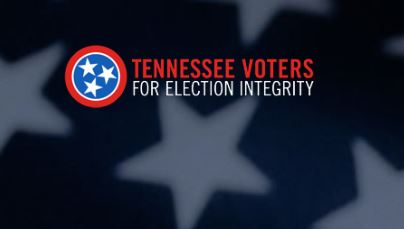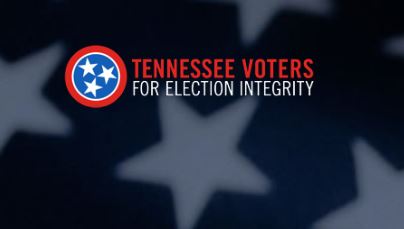On Monday, June 12, the Williamson County Commission in Tennessee will meet at 7 p.m. in the Williamson County Administrative Complex. On their agenda is a resolution from the Williamson County Election Commission (WCEC) concerning funding for the ES&S machine voting system (plus additional machines call the ExpressLink system) for Williamson County elections.
You’ll recall that on Monday, May 8th, a previous WCEC resolution failed for lack of a majority, which sent the WCEC back to a drawing board.
Citizens continue to have grave concerns about the county’s continued reliance on vulnerable voting machines and have been emailing and calling commissioners about this. (I can put you in touch with several of these people.) Several citizens have visited Commissioners one-on-one to better understand any concerns and answer any questions they may have. Below are the main concerns they have told us… and our answers as citizens to those questions.
This situation continues to pit citizen “Davids” against an entrenched WCEC/establishment “Goliath” who is refusing to consider the documented and factual concerns of a large number of citizens. The WCEC’s “intent” to pursue a study of hand-marked paper ballots(in their new resolution) is considered by most to be a weak offer meant to siphon off votes in support of the machines and never complete the study. Or do so with preconceived result in mind. Citizens have had previous experience with the WCEC concerning “studies” which they have flatly refused to do.
From our conversations with Commissioners, we’ve learned about half are hesitant about saying “no” to purchasing more ES&S voting machines. Many have given us three reasons that, we believe, have come from conversations with the Williamson County Election Commission (WCEC). Here are answers to these concerns that actually tell a fuller story that all Commissioners and citizens should be aware of.
1. Commissioners say they do not want to violate state law.A. State law does not preclude the use of hand-marked paper ballots (HMPBs).• Evidenced by the fact that Shelby County, Hamilton County, Maury County and Knox County are all conducting elections with hand-marked paper ballots.• All absentee ballots are on hand-marked paper and now include a watermark for security. These same ballots could be used for early and election day voting.• While explaining the use of precinct-based optical scanners/tabulators, Tennessee Code Annotated 2-20-101 states concerning ballots: “…into which optical scan voter-verified paper ballots, marked either by hand by the voter or with the assistance of a device, are inserted…”• Tennessee Secretary of State Tre Hargett supports hand-marked paper ballots (2nd quote): https://rumble.com/v2dx3fi-hargett-and-goins-voice-support-for-hand-marked-paper-ballots-and-precinct-.htmlB. In precincts where the vote count exceeds 300, state law TCA 2-9-109 requires that counties “…shall be equipped… with voting machines for use in all elections….” This language is intended to apply to the means of counting ballots rather than how ballots are marked. Optical scanning tabulators are required to count the ballots. Ballot marking devices are not.
2. Commissioners say they do not want to force the WCEC to sue the County.A. The WCEC can choose this course of action, but it is not required.B. An alternate course of action would be for the WCEC (an unelected body) to work with the County Commission (an elected body, acting to represent the ‘will of the people’) to develop a voting system that responds to the valid and carefully researched concerns of the citizens of Williamson County. We have offered to the WCEC a simple process to immediately test HMPBs.
3. There is a fiscal responsibility here.A. In terms of this issue, it makes sense for the County Commission to request the WCEC to authorize a thorough evaluation of all costs associated with the ES&S system. Although the initial cost is largely paid by the state and HAVA (Help America Vote Act [2002]) funds (still tax payer dollars!), future costs include software and hardware upgrades, new licenses, costs for ES&S to set up each election and, in many cases, be on-site before, during and after an election to ensure the machines perform properly, possibly brand new machines in 2-3 years, the possibility of WCEC adding another new piece of equipment/system like the WCEC plans to add this year with the ExpressLink software and 145 ExpressVote printers for $121K, to name a few.
B. In private business, rarely (if ever) is equipment that is used on a very sporadic basis acquired as a capital outlay. This is particularly true in an environment where the quality of the product is in question and upgrading of future models of that equipment is likely.
C. Always, always, always a choice to purchase comes with a complete cost-benefit study of not just machines, but all that they affect. In this case, the greatest benefit to be considered is maximizing election security. Given the cloud of uncertainty surrounding the manipulation of votes cast on electronic voting machines and the essential function of election integrity in the continued success of our constitutional republic, a five-to-ten-year cost/lifecycle/benefit analysis cost-benefit study comparing hand marked paper ballots and the ES&S system must be conducted prior to choosing which system to purchase. To be meaningful, this study must be conducted by an independent body and must include cyber security expertise and knowledgeable citizen involvement.
4. Still like machines? Then check this link for a cyber expert’s three-minute Congressional testimony regarding machines: https://rumble.com/vtacuu-halderman-tells-congress-voting-machines-can-be-hacked-anywhere-anytime-by-.html
Still not satisfied? Then check this attachment: https://tennesseeelectionintegrity.com/wp-content/uploads/2023/05/Why-citizens-against-machines-FINAL-052023.pdf .
Citizens’ major concerns are on page one and rebuttals to at least ten things the Williamson County Election Commission told Commissioners in their 13-page May 4, 2023 letter are on page two.



